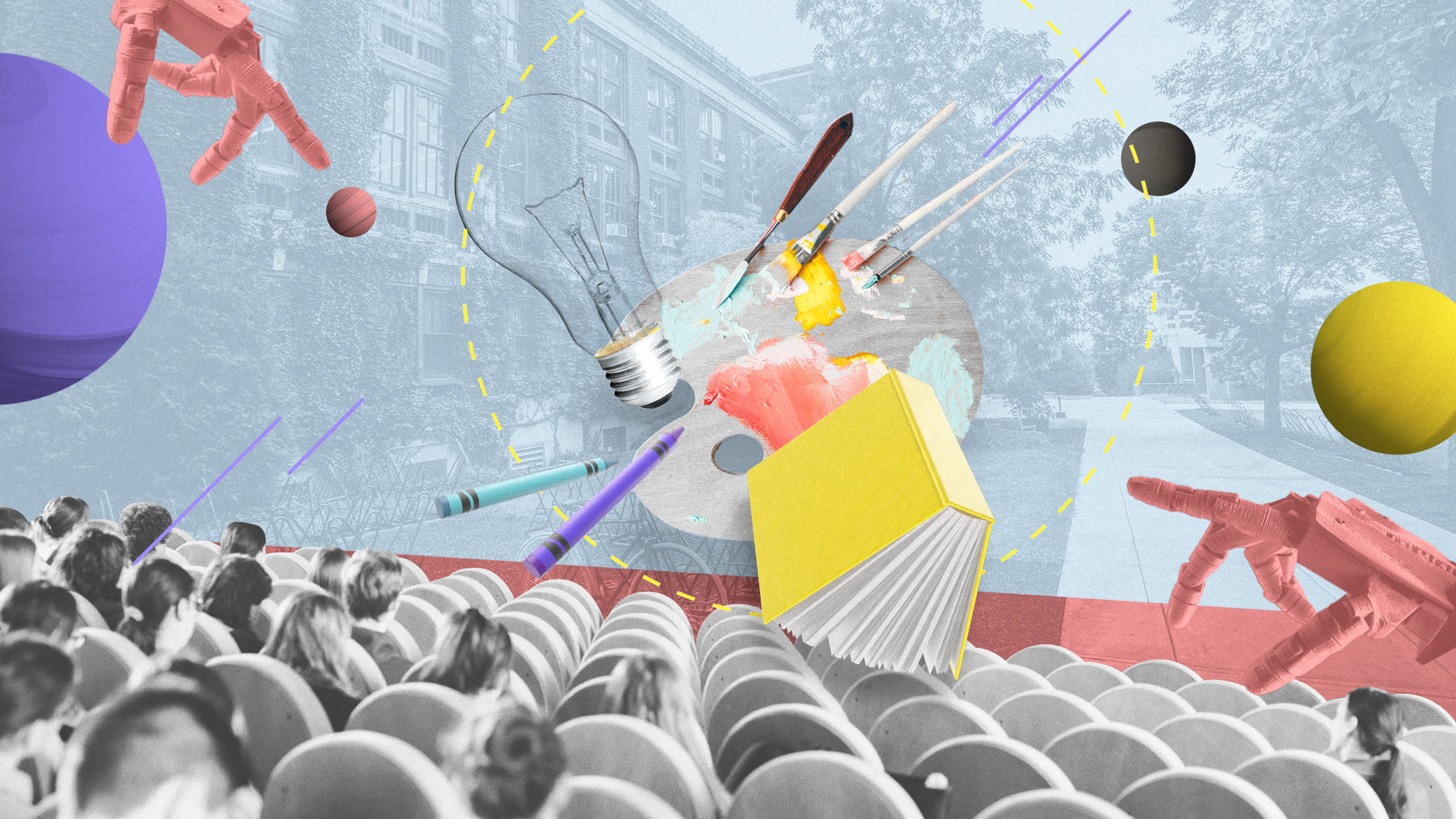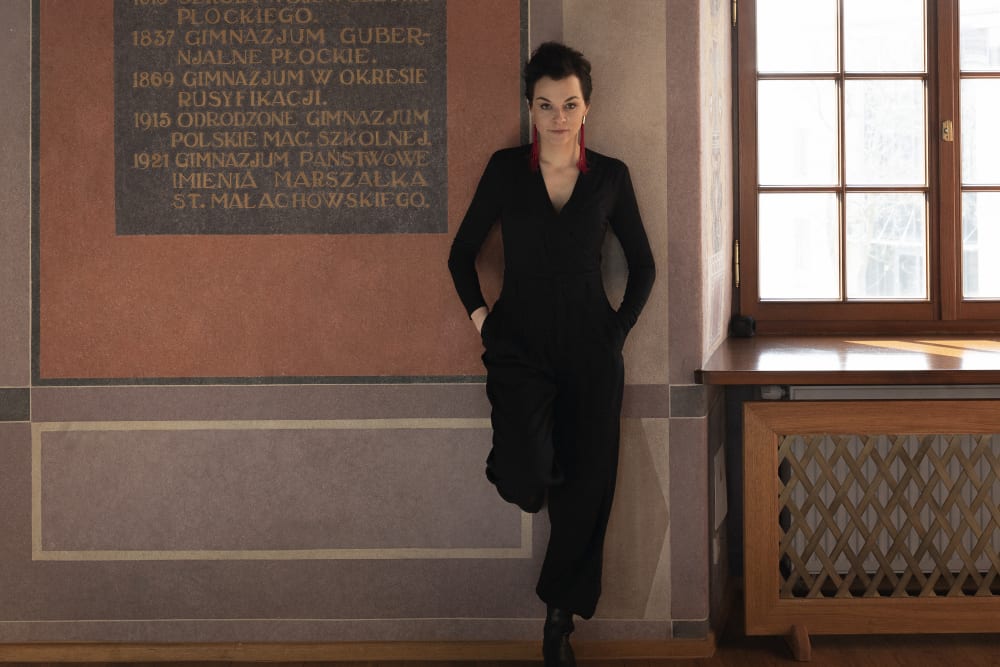Self-management as the future of work and education
Creativity, flexibility, and the ability to make decisions in a changing environment - these skills can’t be replaced by machines. Do schools prepare us properly to function in the modern world? Read about self-management, holacracy, and democratic education.

Table of contents
Multidimensional technological progress and industrialization have changed the job market for good. About 30 years ago, the industry and production sectors were utterly manual. Nowadays, we can automatize lots of our daily tasks. Machines can complete most simple, repeatable actions with ease. Digitization and automation are only one side of the coin – the other is the rate of change to which people, the system in which they live, and their work are subjected.
Will most jobs disappear from the job market?
Not really. The actions that machines can complete will surely disappear from our daily tasks. However, AI and automation can’t replace more complex responsibilities. The higher skills required for dealing with a complex and changing environment are still needed.
What are the forecasts? The labor market will value skills that cannot be replaced by machines. Even more than now, employers will look for creativity, flexibility, and the ability to make decisions in a variable and sophisticated environment.
The key is… Self-management!
At Boldare, from the very beginning of the company’s existence, we have focused on self-management and self-organization. This is a concept observable in many business organizations – it means, in short, the process by which individuals organize their communal behavior to create global order by interactions amongst themselves rather than through external intervention or instruction.
Of the possible frameworks for self-organized operation, we chose holacracy - a system based on a hierarchy of vision and strategy, knowledge and experience, rather than people per se.
Let’s demonstrate this with a living example. At Boldare, we have interlocking circles (time-oriented, goal-oriented) instead of teams and subteams. There are flexible roles instead of fixed job descriptions. And essentially, we have no managers.
I believe now is the perfect time for a holacracy. Why? Because the world has changed. We no longer need to convince anyone that not much can be predicted and our ability to adapt to change is key. Also, the job market is full of Millennials, who are not keen on traditional structures. And finally – today, information is everywhere. Highly-skilled and educated people want to work in a democratized environment in which information is easily available. They want to have all they need to make their own decisions.
The problem, however, is that self-organization is a concept for which we are not at all prepared as young people entering the job market. Business and industry are growing very fast, and unfortunately, the education system has not kept up with them. The traditional school system does not support the ability to collaborate, handle variability, live a highly unpredictable life, and make independent, creative decisions or solve problems.

What are the main concerns of the current education system?
Why isn’t the school system keeping up with business? Currently, the education system is mainly based on:
- Strictly defined programs and structure – The world at school is arranged in 45-minute slots, fully laid out in advance. Children still learn many things by heart – the cult of theoretical knowledge continues to trump the development of social, personal, and non-schematic skills.
- Tests and exams that test zero-one knowledge – Tests are graded according to a set key – the answer is either right or wrong. In real life, we rarely function in such a simplified way. Additionally, there is no possibility of using sources of knowledge during exams (which is de facto normal in adult life).
- Uniformity – The educational program is largely the same for all students. It does not support their diversity, individual aptitudes or passions.
- A strict timetable – Lessons always take the same amount of time – students do not manage their time at school on their own, but move according to a predetermined order (adult people do not function this way at all).
- Predominantly individual work – Tasks or tests are usually done by oneself – teams are not built at school. Occasionally, group work appears, but it is episodic. Nobody teaches children what team roles are and how to effectively organize teamwork.
- Teacher-led decision-making – The teacher decides what children will learn at any given time. There is no way for students to reach for subjects or readings on their own at any given moment according to their rhythm, mood, or aptitude. This disrupts children’s natural cognitive curiosity, which the system attempts to capture in a specific framework.
- Competition – The traditional system promotes competition for good grades rather than cooperation and working together toward a goal. Nor does it teach the use of diverse competencies.
A system that functions in this way can prepare people for the role of employees… who obediently follow the orders of their superiors. They can become workers that are not used to challenging the status quo or questioning the accepted order. Thus, they have no basis for distributed authority, evolutionary learning or even simple decision-making. This kind of employee performs a narrow range of tasks and has very little decision-making authority.
So, the future will be jobs and work environments that rely on universal competencies. Unfortunately, young people aren’t prepared to function in a complex environment which follows completely different rules to those students have been accustomed to by the traditional education system.
So do we have any alternatives to traditional schooling?
Many opportunities for alternative approaches to education are available here and now - unschooling, homeschooling, democratic, program-specific schools. The closest to my beliefs are democratic schools. They are based on a completely different system than traditional education. First, they focus on the development of social and emotional skills. They build in a child the awareness of his/her own strengths and interests, they allow the child to develop at their own rhythm. Importantly, children function in a diverse environment (which mirrors the real world) and learn to cooperate with others.
Briefly speaking, a democratic education is education which most appropriately meets the needs of the learner, the community, and society. It does this through developing reflective individuals who are collaborative problem-solvers and creative, flexible thinkers. Just what the world of constant political turmoil and emergent technologies requires. This means that students decide on the process for their own development. The idea of democratic education is non-coercive and individualistic.
The aim of a democratic school is not to acquire theoretical general knowledge, but to develop in a young person the qualities that are necessary to find a good job in the future. Democratic education promotes in children, among others, individualism, creativity, logical thinking, the ability to draw conclusions, independence, and responsibility.
Democratic education is based on the idea that learning is a human right, not a duty. The teacher plays a different role, helping children and not imposing a point of view. In some schools, the system of grades, punishments, and rewards are also abandoned. Decisions on how to act or how to solve conflicts are made together by voting. A student’s vote has the same weight as the teacher’s vote.
So it would seem that our future lies not only in self-organizing companies, but also in schools that will prepare us to function in the modern world.

Is the traditional education system dooming children to failure?
Not necessarily. People and teachers are also part of the system. A great deal depends on the culture in which the school operates and the teachers who deliver the curriculum. If they can approach the system flexibly, they may succeed in not stifling the natural potential and cognitive curiosity of children.
Today we have many examples of great alternative schools, and their number continues to grow at a tremendous rate.
At the time of my high school education, there were already places where a different approach offered a chance for development – if not throughout the whole school system, then at least in individual classes, the first signs of change could be seen.
A good example may be Marszałek Stanisław Małachowski High School in Płock - the oldest high school in Poland, where I was educated. At that time, the school gave kids a lot of freedom in choosing their priorities. This was thanks to very open teachers. I remember when I told my teachers I wanted to go to film school, they immediately gave me chemistry and physics, even though I was in a biochemistry class.
My teachers attended my performances and concerts and supported me on that path, at the same time letting go of system-wide requirements. We worked a lot as a team and… we had “tacit” permission to rebel. “Malachowiak has the right to rebel” – you could feel it.
At the same time, because of the long and wonderful history of the school, we spent a lot of time talking about the importance of history, places, and values. We discussed what the purpose of learning history was, why we hung old pictures on the walls, and why it was important. We talked a lot about what it means to be free, what a free country is in general, and why it is significant. This school has always had a unique spirit.

If you would like to hear more about self-management, holacracy, and democratic schools, check out the newest episode of Pora na Podcast.
Share this article:






